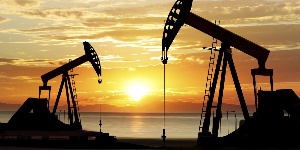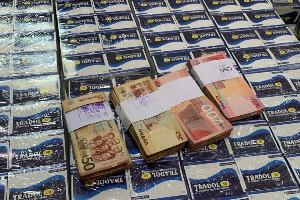Prices of domestic air tickets have remained high despite the slump in global oil prices, mostly as a result of government’s imposition of taxes on the commodity.
Aviation fuel is one of the most expensive commodities in running an airline. It constitutes between 35-40 percent of an airline’s cost. Indeed, domestic airlines have had to suffer the consequences of Ghana’s expensive aviation fuel regime.
The cost of Ghana’s aviation fuel is the sub-region’s highest; at US$3.14 per gallon the specialised fuel is more expensive in Ghana than other West African neighbours Benin, Ivory Coast, Nigeria, Gambia, Senegal and Cameroon among others.
The specialised fuel is sold for about US$2.30 cents per litre in Nigeria, US$2.30 in Benin and US$1.94 cents per litre in Cameroon.
“Ghana sits as the most expensive aviation fuel market within the sub-region,” Charles Asare, Managing Director of the Ghana Airports Company Limited, noted at a recent event.
Aviation fuel tracks the price of a barrel of oil, and Jet Fuel Spot Price FOB as at February 8, 2016 was selling for about US$1.02 per gallon on the international market.
An Energy Levy was imposed on petroleum products this year -- barely 14 months after a Special Petroleum Tax of 17.5 percent was introduced, principally to raise more funds to bridge a widening deficit.
The new levies are captured under the Energy Sector Levies bill, which was passed recently by Parliament to harmonise energy sector levies.
Analysis by the African Centre for Energy Policy (ACEP), an energy policy think-tank, reveal that the new levies slapped on petroleum products will squeeze out of consumers an incremental revenue of at least GH¢3.2billion annually, based on volumes of petrol, diesel and LPG consumed in 2015.
Contrary to the Finance Ministry’s projection that the levies will lead to a five percent increase in price of petrol, 2.9 percent in the price of diesel, and 1.74 percent increase in the price of LPG, ACEP analysis show a price increase per litre of 33 percent for petrol, 40 percent for diesel and 22 percent for LPG per kg following introduction of the said levies.
Given that the price of aviation fuel tracks the price of petrol, the elevated prices of petrol due to the imbedded taxes means that ATK is still very expensive in Ghana.
This has denied travellers the benefit of enjoying low world fuel prices as reflected in the tickets they purchase.
Mr. Asare was concerned that lifting fuel at Kotoka International Airport (KIA) by international airlines servicing the KIA has not kept up with the year-on-year increase in passenger throughput on the international routes.
With the current 13-year low prices in oil price on the international market expected to last till at least end of the year, this has not translated into low fares for passengers in Ghana -- through no fault of airlines, but partially as a result of taxes imposed on the commodity.
The International Energy Agency is reported by CNN as saying that the global oil glut will grow throughout the year. “With the market already awash in oil, it is very hard to see how oil prices can rise significantly in the short-term," the IEA said in its monthly report.
Meanwhile, airlines and passengers elsewhere are benefitting from the slump in prices of aviation fuel.
Virgin Australia, for instance, has benefitted from the slump in oil prices. Virgin Australia, Australia’s second-biggest airline, has announced impressive results for the 2015 financial year largely on the back of 12-year-low oil prices.
The airline reported a US$33.8million benefit in the fall in oil prices offsetting a US$19.2million impact from the Bali volcanic flight disruptions in November that severely affected revenue.
It’s Chief Executive, John Borghetti, said that the airline expects to make more gains from further falls in oil price for the first quarter of this year.
Business News of Tuesday, 16 February 2016
Source: B&FT Online













